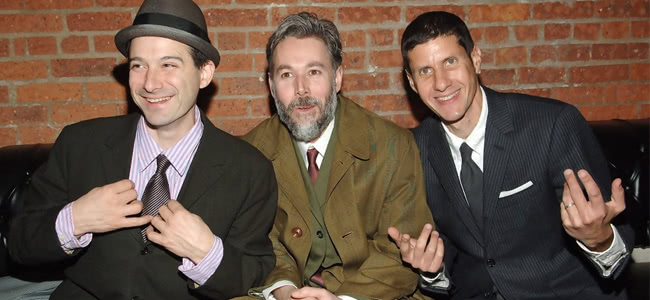Following the tragic passing of the Beastie Boys’ Adam ‘MCA’ Yauch last year, it was revealed in his last will and testament that the fallen artist wanted to ensure his musical legacy was not misused for “advertising purposes.”
Now that declaration is being put to the test in a messy legal dispute between the Beastie Boys and the makers of sophisticated toys for young girls over a music video that refashions one of the hip-hop trio’s early work into a feminist statement.
Last week, GoldieBlox – an American start-up whose aim is to create toys that buck the pink-drenched stereotypes available in the world of toys for young females – released a two minute advert of three girls constructing a tricky Rube Goldberg-like series of contraptions; all to the soundtrack of a cover version of Beastie Boys’ ‘Girls’ with alternate lyrics encouraging young development beyond typical gender stereotypes.
The video quickly became a viral hit, racking up more than 8 million views and stoking online discussion following its debut seven days ago. Many championing the cheeky reversal of the Beastie Boys’ 1987 original, taken from their blockbuster-selling debut album Licensed To Ill.
While the original debut found MCA, Michael ‘Mike D’ Diamond, and Adam ‘Ad-Rock’ Horowitz singing degrading lyrics over a dinky xylophone instrumental, (“Girls – to do the dishes/Girls – to clean up my room/Girls – to do the laundry” etc.), The GoldieBlox version replaces them with greater ambitions; with lyrics like: “Girls – to build the spaceship/Girls – to code the new app/Girls – to grow up knowing”.
The video, with its clever construction sequence, makes the point that there’s more for young females than being fenced into a pink princess pen. “You think you know what we want – girls/ Pink and pretty it’s girls/ Just like the fifties it’s girls/ You like to buy us pink toys/ And everything else is for boys.”
Despite the positive feedback on their spin on the Beasties track, GoldieBlox soon found themselves the target of legal action by the Beastie Boys’ legal team.
According to a lawsuit from the American toymakers filed on Thursday, (which you can view in full here) “the Beastie Boys have now threatened GoldieBlox with copyright infringement.” In response, GoldieBlox states their version is a satire of the original rather than a rip-off, citing the “fair use” defence that makes it exempt from copyright infringement, as Billboard reports.
“Lawyers for the Beastie Boys claim that the GoldieBlox Girls Parody Video is a copyright infringement, is not a fair use and that GoldieBlox’s unauthorized use of the Beastie Boys intellectual property is a ‘big problem’ that has a ‘very significant impact,” reads the lawsuit. “GoldieBlox created its parody video with specific goals to make fun of the Beastie Boys song, and to further the company’s goal to break down gender stereotypes
Goldieblox is now taking the issue to a California Federal Court, with the plaintiff naming not only the Beastie Boys, but also producer Rick Rubin, label Def Jam Music Group, and publishers Sony/ATV in their legal complaint, according to Rolling Stone.
Expanding on the defence that the commercial’s use of the 1987 single is ‘fair use’, the document reads: “in the lyrics of the Beastie Boys’ song entitled Girls, girls are limited (at best) to household chores, and are presented as useful only to the extent they fulfill the wishes of the male subjects.”
The suit adds that: “GoldieBlox created its parody video with specific goals to make fun of the Beastie Boys song, and to further the company’s goal to break down gender stereotypes and to encourage young girls to engage in activities that challenge their intellect, particularly in the fields of science, technology, engineering and math. The GoldieBlox Girls Parody Video has gone viral on the Internet and has been recognized by the press and the public as a parody and criticism of the original song.”
It’s a sticky issue, considering that whatever GoldieBlox’s social convention-busting aims, the heart of the commercial is to sell a product and using somebody’s else’s artistic property do it, exactly what Yauch’s last will and testament wanted to ensure could never happen.
Complicating the issue is that the matured Beastie Boys have downplayed any pride they took in the debauchery and vaguely misogynistic antics of their early days, so while legally they’re likely opposed to the use of their music in a commercial – satirical or otherwise – socially, they’d be aware of the aims and implications of the re-tooled ‘Girls’ track.
In related news, the Beastie Boys are still in an open case defending a lawsuit over the use of allegedly illegal samples on their landmark 1989 album Paul’s Boutique. Interestingly, a tribute to that same album – that uses the source material the Beasties and production crew, the Dust Brothers, used to construct the album – is hitting Australia for a tour next year.




































